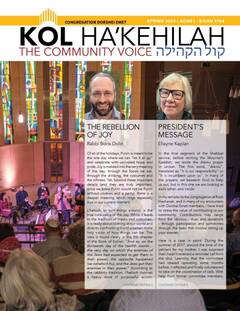Tu Bishvat

Tu Bishvat
Although we are most familiar with Rosh Ha-Shanah, 1 Tishrei, as the New Year in the Jewish calendar, there were actually four new years designated by the rabbis – by which one would measure years for four different things. Rosh Ha-Shanah as we know it is the new year of the kings, from which time a king’s reign would be measured. Tu Bishvat (15 Shvat) is the new year of the trees, from which the age of a tree would be counted. This was important when following the agricultural laws, which forbade harvesting fruit during the first three years of a tree’s life, and which also required bringing a sacrifice from the tree’s first eventual harvest.
The rabbis of the Talmud understood this both practically and spiritually. As the fate of human beings is decided on Rosh Ha-Shanah, so the tradition tells us the fate of the trees is to be decided on Rosh Ha-Shanah Le'Ilanot - New Year's Day for the Trees, Tu Bishvat: "…which shall flourish and grow and which shall wither and shrink: which shall suffer from adverse weather and harmful insects, and which shall brave all dangers.”
In the 16th century in the town of Sefat, a mystical revival was occurring. The Kabbalists (mystics) developed the tradition of celebrating Tu Bishvat by eating fruits in a festive meal modeled on the Passover seder. In the Tu Bishvat Seder, they dined on four cups of wine along with four groups of fruits that aymbolize different aspects of ourselves. The Kabbalists read special prayers, poems, and verses in between courses. They viewed Tu Bishvat as a holiday that integrated two concepts - the revival of nature and the revival of the Jewish nation.
In modem times the tradition of planting trees on Tu Bishvat has become a popular celebration, connecting Jews around the world with the land of Israel. It has taken on a connection to environmentalism, and many congregations focus both on the spiritual renewal of the mystical seder and also on the environmental renewal that is so badly needed today.
At Congregation Dorshei Emet, we celebrate Tu Bishvat with a holiday themed Kiddush, with fruits, nuts, and vegetables from the land of Israel and connected to the symbolic types of fruits outlined in the mysical seder. We also hold a congregational Tu Bishvat Seder, as well as one for our Family Shabbat program.
Wed, April 24 2024
16 Nisan 5784
Upcoming Programs & Events
Apr 27 Shabbat-No Kiddush (with "Tot Shabbat program" -ages 1-5) Shabbat, Apr 27 10:00am |
Apr 29 Passover Day 7-Yizkor Service registration Monday, Apr 29 10:00am |
May 2 Israel Meze Workshop Thursday, May 2 7:00pm |
May 4 Shabbat registration (Family Shabbat) Shabbat, May 4 10:00am |
May 7 MMFA visit -O'Keeffe and Moore Exhibit Tuesday, May 7 1:30pm |
View Calendar






